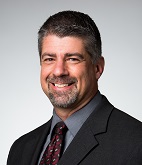By Michael Pittaro, Faculty Member, Criminal Justice, American Military University
I am actively involved in several local community service endeavors outside my normal workday. All of these endeavors are strictly voluntary. For instance, I serve on journal editorial advisory boards, including serving as the Managing Editor of The International Journal of Cyber Criminology. In addition, I frequently present at local high schools and universities on a variety of criminal justice topics.
I am also a regular contributor to American Military University’s In Public Safety blog. Lastly, I am actively involved in the county in which I reside by serving as the Democratic Committee Person for my ward and serve on a number of county government boards.
As a university professor and scholar, I volunteer my time as a writer, editor and speaker to foster interest in criminal justice. During a recent presentation at a local high school, I spoke about career opportunities in the criminal justice field.
I also told the students about all the volunteer activities I’m currently involved in. One student asked me about how I managed my time and how did volunteering add to my personal and professional goals.
Community Service Has Always Been Part of My Life
No one had ever asked me that question, so it was not something I had prepared for. But I was able to answer without hesitation, because community service has always been part of my life.
I said that I have always volunteered my time in some capacity ever since I was in high school. Granted, I have been known to overextend myself at times, but that’s simply because I have always truly enjoyed helping others.
When I think of community service, two thoughts come to mind. First, I am immediately reminded of criminal offenders because I am a criminal justice professional. Some offenders have a court mandate to complete a certain number of hours of community service to fulfill their probation or parole requirements.
Second, I think of high school students who are persuaded – albeit reluctantly at times – to engage in community service as part of their graduation requirements. University admission departments look favorably on students who have done community service.
But community service goes much further than just another means to a college acceptance. Community service should be something we want to do, not something we are directed to do in order to fulfill a specific requirement.
To me, community service consists of people volunteering their services for the benefit of an individual, group, community or its institutions.
Doing Community Service Makes a Difference in the Workplace
When I worked in corrections administration and was in a position to hire employees, I always reviewed candidates’ resumes to see if they had volunteered in any personal or professional capacity. If they did, that told me quite a bit about their character.
I would ask candidates probing questions about why they volunteered and how did their volunteer work add value to their lives. Voluntarily helping others is something I deeply admire and respect in an individual.
Benefits of Community Service
From an altruistic perspective, I volunteer because it gives me tremendous emotional joy and fulfillment. I have always enjoyed helping others, which is likely one of the many reasons why I find teaching so rewarding. The benefits are both intrinsic and extrinsic for me.
[Related: The Scholar-Practitioner Approach to Teaching: A Criminal Justice Professor’s Perspective]
One of the most gratifying benefits of community service is the inherent sense of pride in adding to and improving the lives of others without expecting anything in return. Volunteering in community service also fosters a sense of personal and professional responsibility. In addition, you develop a stronger connection with individuals in your community.
However, before you decide to engage in some type of community service, ask yourself a few important questions to test whether you have the internal passion and drive you get from helping others:
- Why do I want to volunteer?
- What value will my volunteer work add to the individuals or organization I want to give my time to?
- What value will volunteering add to my life personally and professionally?
- What skill sets do I possess that I can bring to the organization, club or committee?
- What types of activities would benefit from my personal and professional strengths?
- Do I have the time beyond my personal and professional commitments for volunteer work?
- How many hours in a week or month can I dedicate to community service endeavors?
Community service helps us to explore and embrace compassion, empathy and understanding for others, especially those who might be less fortunate. There is no greater feeling than knowing we are making a difference in the lives of others, whether by serving as a role model or mentor or simply by being there to offer personal or professional direction and guidance. Knowing you have played such a role, whether big or small, is truly rewarding.
How Do I Volunteer in My Community?
One of the most underserved sectors of society are our nonprofit organizations. Contact one or more nonprofits with which you identify on a personal or professional level and ask what you can do to help. The United Way and the American Red Cross are just two of the wonderful organizations that improve the lives of millions of individuals.


Comments are closed.